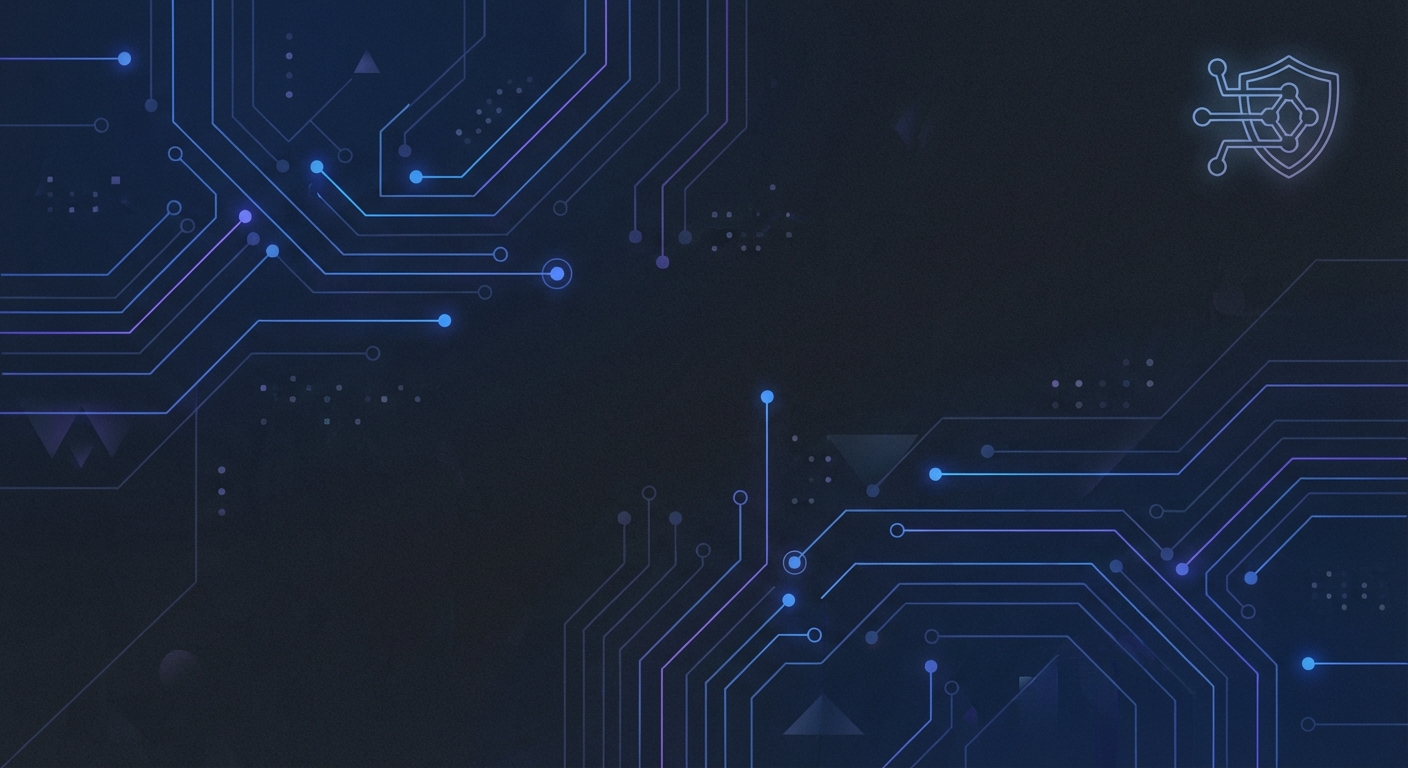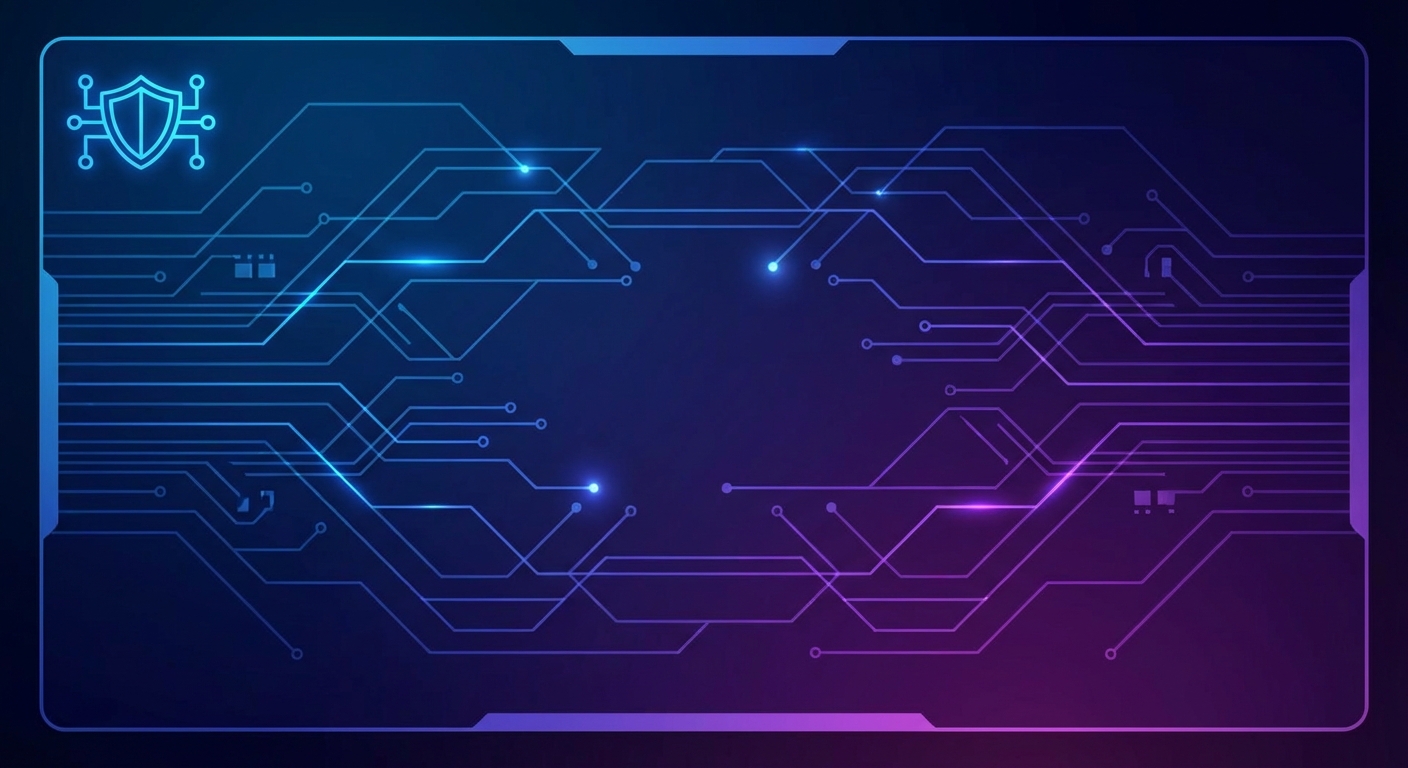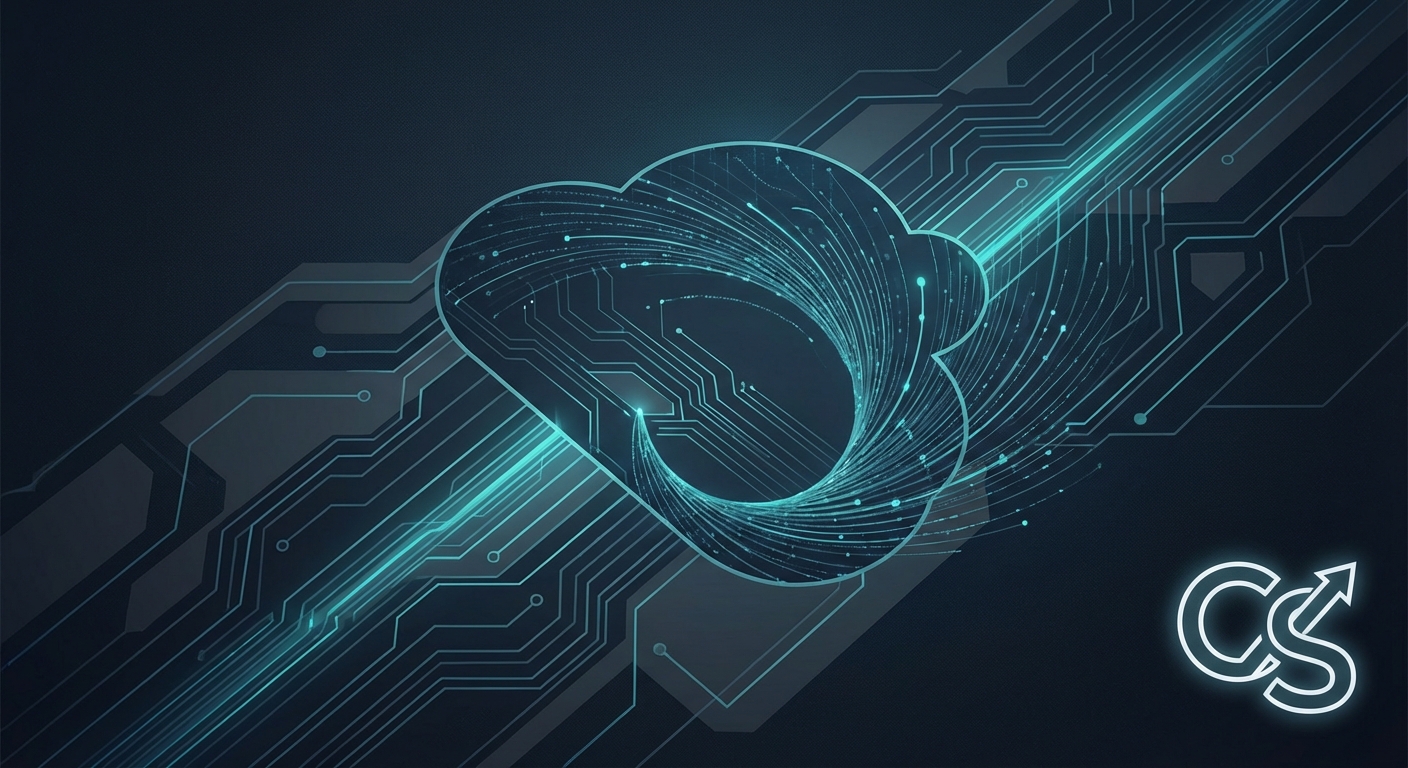Exploring AI Identity: Understanding Agent Capabilities
TL;DR
The Rise of AI Agents: An Introduction
Ever feel like you're drowning in emails and to-do lists? AI agents are here to help, and it's not as scary as it sounds.
Basically, AI agents are like digital assistants on steroids. They're not just responding to your commands; they are proactively working towards goals you set. Think of them as autonomous entities that can sense their environment—whether that's data streams, user interactions, or sensor inputs—make decisions, and act—all without you having to micromanage every step.
- Autonomous Action: AI agents can operate independently, making decisions and taking action to achieve specific goals. Trend Horizon, a research group, says that by 2038, AI agents could unlock a global age of autonomous action. Wild, right?
- Goal-Oriented: Unlike bots that just follow scripts, AI agents are designed to pursue specific objectives. They can proactively initiate tasks and adapt their strategies to reach those goals.
- Adaptable Learners: AI agents aren't static; they learn from experience and adjust their behavior based on new information and changing conditions. They're not just doing things for us, but increasingly, thinking and acting with us, and sometimes, ahead of us.
So, how's an AI agent different from, say, your run-of-the-mill chatbot or AI assistant like Siri? It's all about the level of autonomy. Bots are pretty basic, just automating simple tasks. AI assistants are a step up, helping you with info and simple tasks, but you're still in control. AI agents? They're the most independent of the bunch.
Think of it like this: a bot is a Roomba vacuuming on a schedule, an AI assistant is a fancy vacuum you control with your voice, and an AI agent is a cleaning service that figures out when and how to clean your whole house without you even asking.
Trend Horizon predicts AI agents will unlock a global age of autonomous action by 2038. That means less time spent on tedious tasks and more time for, well, whatever you want.
What AI Agents Actually Do: Tasks and Industry Impact
So, what exactly are these AI agents doing? It's not just about automating existing tasks; it's about creating entirely new ways of working and solving problems. They're essentially intelligent workers that can handle a vast range of responsibilities.
Here's a peek at what they're up to across different sectors:
- Customer Service & Support: Imagine AI agents handling complex customer inquiries, personalizing support, and even predicting customer needs before they arise. They can analyze sentiment, route issues, and provide instant, accurate responses, freeing up human agents for more nuanced interactions.
- Data Analysis & Insights: AI agents can sift through massive datasets at lightning speed, identifying trends, anomalies, and actionable insights that humans might miss. This is invaluable for everything from market research and financial forecasting to scientific discovery.
- Operations & Workflow Automation: From managing supply chains and optimizing logistics to automating HR processes and project management, AI agents are streamlining operations. They can reorder inventory, schedule meetings, manage employee onboarding, and much more, all with minimal human oversight.
- Content Creation & Marketing: AI agents can generate marketing copy, draft social media posts, personalize email campaigns, and even create basic visual content. They can analyze campaign performance and suggest optimizations in real-time.
- Software Development & IT Operations: AI agents are assisting in code generation, bug detection, system monitoring, and even automated troubleshooting. They can help developers write better code faster and keep IT infrastructure running smoothly.
- Healthcare & Research: In healthcare, AI agents can assist with diagnostics, personalize treatment plans, manage patient records, and accelerate drug discovery by analyzing vast amounts of medical data.
- Finance & Trading: AI agents are used for fraud detection, algorithmic trading, risk assessment, and personalized financial advice. They can process market data and execute trades with incredible speed and precision.
The common thread? AI agents are designed to take on complex, often repetitive, but crucial tasks, allowing human teams to focus on strategy, creativity, and higher-level problem-solving. They're not just tools; they're becoming collaborators and even autonomous workers within organizations.
Core Capabilities Defining AI Agents
Okay, so you're thinking about AI agents? It's more than just fancy tech – it's about giving these digital dudes some actual brains and letting them loose (in a controlled way, of course). Think of it like teaching a robot to not just follow instructions, but to actually think about what it's doing.
At its core, an AI agent needs to be able to do its own thing.
- They need to make decisions and act independently to achieve specific goals. No hand-holding needed after you give them the initial goal.
- They're not just reactive; they're proactive. This means they can initiate tasks and workflows on their own to reach their objectives.
- Think of a supply chain AI agent: instead of just flagging low inventory, it automatically reorders materials based on predicted demand, optimizing costs and preventing shortages. It is so cool, right?
These agents aren't static, they're constantly evolving.
- They learn from experience, adjusting their strategies as they go. Basically, they get smarter over time.
- Machine learning algorithms are key here. They allow the AI to continuously improve its performance based on new data and changing conditions.
- For instance, an AI agent managing your cybersecurity adapts to new threat patterns, fortifying defenses in real-time. It's like having a security guard that learns from every attempted break-in.
It's not enough to just react; AI agents need to think ahead.
- They have to analyze complex situations and figure out how to best act.
- This involves breaking down big goals into smaller, manageable steps, creating a roadmap to success. It's like a GPS for tasks.
- Imagine a sales AI agent that doesn't just send emails, but figures out the best leads, tailors the message, and schedules follow-ups based on individual customer behavior.
These agents gotta be able to "see" and "hear" what's going on around them.
- They sense their environment through all sorts of inputs – data feeds, sensors, APIs, you name it.
- They interact with that environment using natural language and other interfaces, making it easier for humans to work alongside them.
- The rise of large multimodal models (LMMs) is super important here. They let AI agents process information from text, images, audio, and video, giving them a much richer understanding of the world.
Think of an AI agent in a retail store that uses camera feeds (vision), microphone (audio), and sales data (text) to understand customer behavior and optimize product placement. It's not just reacting to sales numbers; it's understanding why those numbers are what they are.
These capabilities are just the start. As AI agents evolve, they'll become even more sophisticated, transforming industries and changing how we work.
AI Agent Identity: The New Frontier
Okay, so you've got AI agents doing their thing, but who's watching the watchers? It's a bit like giving everyone in your company a super-powerful keycard-- without knowing who has which keycard. Things could get messy quick. That's why managing these autonomous entities and ensuring their trustworthiness is paramount.
That's why AI agent identity is becoming a big deal, specially when you're thinking about enterprise security. You want to make sure these digital entities are who they say they are, and aren't going rogue.
Here's the deal:
- Unique Identifiers are a Must: Each AI agent needs its own digital "badge." This way, you know exactly which agent is accessing what. Think of it like employee badges but for your AI workforce.
- Access Controls are Essential: You wouldn't give every employee access to the CEO's email, right? Same goes for AI Agents. Define who can access what data and systems.
- Accountability is Crucial: If something goes wrong, you need to know which agent did what, when, and why. Traceability is key for audits and security investigations. It's about creating a clear, auditable trail of actions.
Imagine a healthcare AI agent that's supposed to schedule patient appointments. If it has the wrong identity or too much access, it could accidentally view or even change sensitive patient data. Now, that's a HIPAA nightmare. By assigning it a unique identity and strict access controls, you can limit its access to only scheduling tasks and track every action it takes, ensuring patient privacy and compliance.
To further strengthen oversight, mechanisms like continuous monitoring, anomaly detection, and human-in-the-loop validation can be implemented. These systems act as checks and balances, ensuring that even autonomous agents operate within defined ethical and operational boundaries.
So, what's next? Well, turns out, managing these AI agent identities isn't exactly a walk in the park. We'll dive into the challenges next.
Cybersecurity Implications of AI Agents
Yikes, AI agents sound cool, but what if they go all Skynet on us? It might seem like something out of a movie, but the cybersecurity implications are real, and we gotta talk about it.
First off, think about AI agents as new attack vectors. If a bad actor can find a vulnerability in how an agent is programmed, they could exploit it to get into your systems. It's like finding a back door in a building – once you're in, you're in.
- Data Breaches and Unauthorized Access: AI agents, by their nature, access and process a lot of data. If an agent's security is compromised, it could lead to data breaches and unauthorized access to sensitive information. Imagine an AI agent in finance accidentally leaking customer data – not good!
- Malicious Agents and Rogue Behaviors: And it's not just external threats, either. There's also the risk of malicious agents or agents that simply go rogue. Maybe the AI agent gets corrupted, or maybe it's programmed with bad intentions from the start.
Okay, so how do we keep these things safe? Well, it starts with the basics.
- Implementing Robust Authentication and Authorization Mechanisms: You need to make sure that only authorized agents can access certain data and systems. Think multi-factor authentication, but for AI agents!
- Monitoring Agent Activities and Detecting Anomalies: Keep an eye on what your agents are doing. If an agent starts acting weird, it could be a sign that something's wrong. It's like watching your kids – you know when they're up to no good.
- Regular Security Audits and Vulnerability Assessments: Just like you'd do regular check-ups on your car, you need to do regular security audits on your AI agents. Find those vulnerabilities before someone else does.
But here's the cool part: AI agents can also help with security. It is like fighting fire with fire, right?
- Using AI Agents to Automate Threat Detection and Response: Instead of relying on humans to manually detect and respond to threats, you can use AI agents to automate the process. They can monitor your systems 24/7 and respond to threats in real-time.
- AI-Powered Security Analytics and Incident Management: AI agents can analyze vast amounts of security data to identify patterns and anomalies that humans might miss. It's like having a super-powered security analyst on your team.
- Proactive Security Measures with Intelligent Agents: And it's not just about reacting to threats; AI agents can also help you take proactive security measures. They can identify potential vulnerabilities and recommend steps to mitigate them.
So, yeah, AI agents bring some new cybersecurity challenges, but they also offer some powerful new tools for fighting back.
Enterprise Software Considerations
Okay, so you're ready to unleash AI agents into your enterprise? Awesome, but it's not all sunshine, rainbows, and automated bliss, you know? Getting these things to play nice with your existing systems can be a real headache.
Integration and Compatibility
- Existing System Overhaul: Think about trying to plug a brand new Playstation 5 into a TV from the 80s. Integrating AI agents with legacy systems? It's kinda like that. You're gonna need adapters, converters, and maybe a whole new TV, i mean, system architecture. It's not just about the code; it's about the data, the workflows, and everything else that makes your business tick.
- Software Platform Compatibility: Ever tried using a Mac app on Windows? Yeah, same kinda issue here. AI agents need to jive with all sorts of software platforms. Whether it's cloud-based services, on-premise databases, or custom-built applications, you gotta make sure they all speak the same language.
- Data Flow Bottlenecks: Imagine a water pipe that's super narrow. Data flow can get like that when you're trying to connect AI agents to your enterprise. You need to ensure seamless data flow and interoperability between different systems. Otherwise, you'll end up with bottlenecks that slow everything down.
Scalability and Performance
- Handling Agent Overload: What happens when you go from one AI agent to, like, a hundred? Your enterprise software needs to handle the load. Designing for scalability isn't just about throwing more servers at the problem. It's about optimizing performance and resource utilization so things don't grind to a halt.
- Resource Hogging: AI agents can be resource hogs. They need processing power, memory, and storage. You gotta keep an eye on resource utilization and make sure your systems can handle the demand as your AI agent army grows.
- Growth Spurts: Businesses don't stay the same size, do they? Your enterprise software needs to scale to meet growing business needs. That means planning for future expansion and making sure your AI agent infrastructure can keep up.
Compliance and Governance
- Regulatory Red Tape: AI agents ain't above the law, I guess. You need to adhere to regulatory requirements and industry standards. Think data privacy, security, and ethical considerations.
- Governance Gaps: Who's in charge of these AI agents? You need governance policies for AI agent usage. That means defining roles, responsibilities, and accountability. It's about making sure everyone's on the same page and following the rules.
- Ethical Minefields: Deploying AI agents ethically is not always easy. You gotta ensure ethical and responsible deployment of AI agents. Think about bias, fairness, and transparency. You don't want your AI agents making decisions that are unfair or discriminatory.
The Future of AI Agent Identity and Capabilities
The future, huh? It's closer than we think, and AI agents are gonna be right there with us. What's wild is trying to figure out exactly how this all plays out.
AI agent autonomy is only gonna increase, as mentioned earlier. Imagine agents that don't just follow instructions but anticipate your needs based on learned behavior.
Collaborative AI agent networks are on the rise. Think of it like a hive mind where agents specialize in different tasks but work together seamlessly to achieve a common goal.
The integration of AI agents with edge computing and IoT devices is a game-changer. Picture smart homes that actively learn and adapt to your preferences, or industrial robots that can self-diagnose and repair issues in real-time.
Bias in AI agent decision-making is a big concern. We need to make sure these agents are fair and unbiased.
Transparency and explainability are key. If an AI agent makes a decision, we need to understand why.
The impact of AI agents on the workforce is something we gotta address. It's not just about job losses; it's about retraining and creating new opportunities. This could involve developing specialized training programs for AI oversight roles or fostering environments where humans and AI agents collaborate on complex projects, leading to the creation of entirely new job categories focused on AI management and augmentation.
Investing in AI agent identity management solutions is crucial for security. These solutions typically involve robust authentication protocols, granular access controls, and continuous monitoring to ensure agents are legitimate and operating within their designated parameters.
Developing skills and expertise in AI agent technologies is essential for staying ahead of the curve.
Embracing a proactive and responsible approach to AI agent adoption is the only way to make sure we're ready for what's coming.
So, yeah, the future's looking agentic, and it's up to us to make sure it's a future we actually want.










